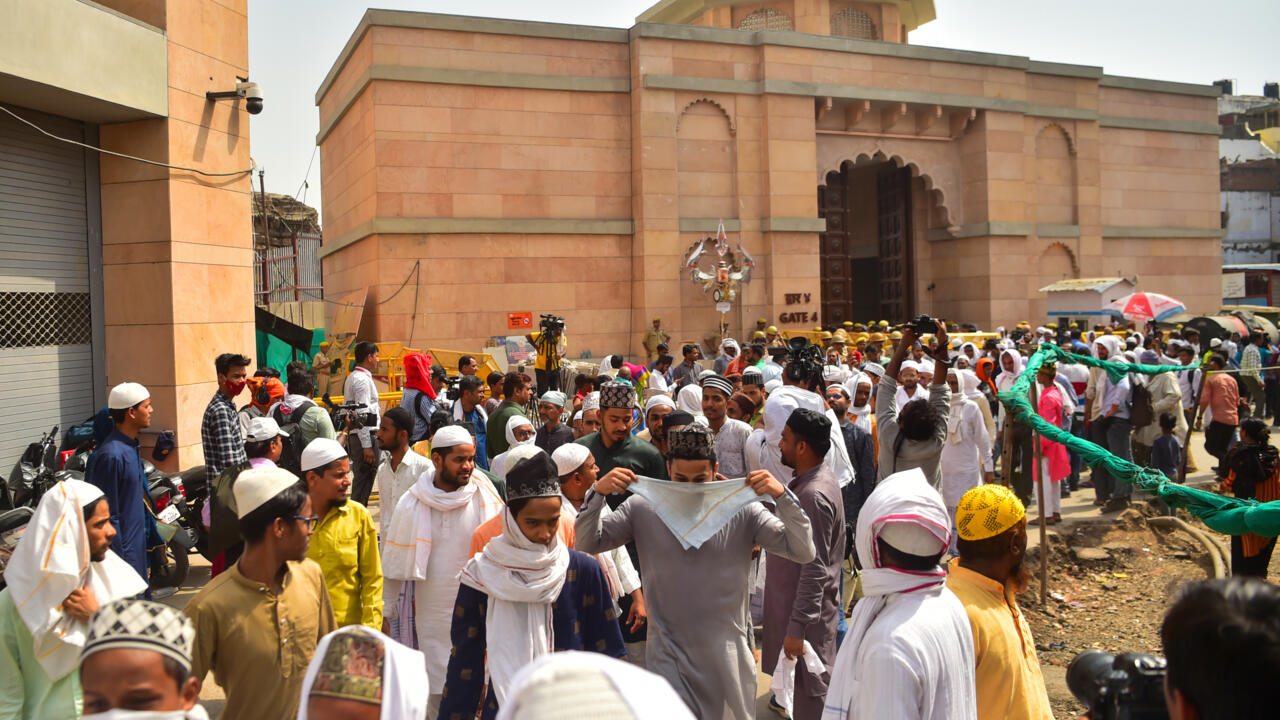Prime Minister Narendra Modi, who recently inaugurated a grand temple on the site of a historically contentious mosque, has found support among ideological campaigners. The temple’s construction stirred controversy due to its location, associated with the demolition of a mosque by Hindu extremists in the past.
The sentiment of repression and cruelty is echoing through the words of figures like Yaseen, a 78-year-old joint secretary at the Gyanvapi mosque in Varanasi, one of the central locations for Muslim gatherings. Yaseen expressed concern that the issues at hand extend beyond the singular incident involving the mosque, suggesting a broader trend of cultural and religious tension.
The campaigners’ resolute catchphrase, “Not even one tomb or mosque will be spared,” serves as a stark warning, hinting at the fears of a wider campaign against historical Islamic sites. This raises questions about the preservation of cultural heritage and religious diversity in the region.
The Gyanvapi mosque, a significant center for Muslims in Varanasi, is caught in the crossfire of historical and religious claims. Local Hindus contend that the mosque stands on a site that was once a Shiva shrine during the Mughal dynasty’s rule over India. The centuries-long history and cultural amalgamation are at the heart of the dispute, showcasing the complex interplay between religious identities and historical narratives.
As the tensions persist, the situation in Varanasi is becoming emblematic of larger debates surrounding the coexistence of religious communities and the preservation of cultural heritage in India. The political dynamics, with Prime Minister Modi being perceived as an ally by some campaigners, add a layer of complexity to the ongoing discourse. The Gyanvapi mosque stands as a poignant symbol of the broader challenges faced by a diverse and culturally rich nation in navigating its historical legacy amid contemporary religious and political realities.
Yaseen said the ruling and subsequent rush of worshippers to the site, unimpeded by authorities, had demonstrated official backing for the Hindu claim, leaving him deeply distressed.
“They are entering through the legal system,” he declared.
I experienced all the hurt that a Muslim could experience. I couldn’t sleep the whole night.
There were noticeable tensions outside the mosque on Friday due to the increased police presence and the approximately 2,500 Muslims who showed up for afternoon prayers—nearly double the usual number.’
Similar to what happened in Varanasi, Hindu activists claimed that the Babri mosque was constructed over the top of a previous Hindu god temple during the Mughal Empire, a time when they believe their religion was persecuted.
Longtime supporter of Hindu issues Sohanlal Arya stated that the court’s ruling to allow Hindus to enter the Varanasi house of worship was “one step forward” in the effort to make up for past wrongs.
“We are proud of this,” the 72-year-old said to AFP.
“They built a mosque where our sacred site formerly stood. Our proof is reliable. That is the reason we completely trust the legal system.
“How much more time will it take? One generation, two generations, three generations?” he added. “We are waiting.”
Also read; Modi to Construct Mandir on the Place of Babri Masjid

